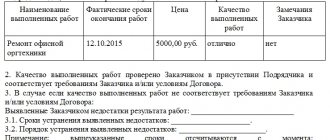The Supreme Court clarified the nuances of levying a penalty in case of violation of work deadlines
The Judicial Collegium for Economic Disputes of the Supreme Court issued Ruling No. 308-ES19-27287 on a dispute between participants in a subcontract agreement regarding the collection of arrears in payment for work performed and penalties for late completion.
From 2012 to 2014, Mobile Mechanized Column Russian LLC (general contractor) and 711 Voenproekt LLC (subcontractor) entered into 6 subcontract agreements for design and survey work.
Subsequently, the subcontractor filed a lawsuit against the general contractor for the collection of debt under subcontract agreements, and the latter filed a counterclaim for the collection of penalties for violating the terms of contractual work (cases No. A63-9366/2017, A63-9367/2017, A63-9369/2017 , A63-9370/2017, A63-9409/2017, A63-9549/2017). On October 10, 2021, during the consideration of these legal disputes, the parties signed an agreement to resolve mutual claims related to violation of payment terms for contractual work performed by the subcontractor and their quality. The participants established a debt repayment schedule by the general contractor for the period from November 30, 2021 to October 31, 2021 in the amount of 99 million rubles. In turn, the subcontractor undertook to eliminate deficiencies and defects during construction and installation work.
Since the general contractor did not repay the debt, 711 Voenproekt filed a claim with the arbitration court to collect it and collect interest for the use of other people's funds. In turn, PMK Russkaya filed a claim for a penalty in connection with the counterparty’s violation of the deadlines for completing the work.
The courts of the first and second instances partially satisfied the subcontractor's claim, collecting 30 million rubles from the defendant. They also satisfied the counterclaim of PMK Russkaya, recovering over 10 million rubles in favor of the company. Satisfying the counterclaim, both courts established the fact that the subcontractor violated the deadlines for completing the work, recognizing the calculation of the amount of the penalty and the concluded agreement on mutual claims as correct. At the same time, the courts noted that the delay in fulfilling the obligation under the subcontract agreement dated October 10, 2013 occurred from December 30, 2014, that is, from the deadline established by the parties in the contract for the completion of work, until their actual completion on August 30, 2021. Since the plaintiff went to court on March 4 of the following year, the statute of limitations for collecting the penalty is not missed for the period from February 3, 2016 (March 4, 2021 minus one year and one month to comply with the claim procedure) to August 30, 2021 (date of actual fulfillment of the obligation).
Subsequently, the district court overturned the judicial acts of the lower authorities regarding the collection of penalties in favor of the general contractor. The cassation found that the PMK Russkaya company missed the deadline for collecting penalties for all stated claims. The third instance concluded that the statute of limitations is limited to the three-year period following the day on which the deadline established in each contract for the completion of work, which had already expired on the date of the appeal to the court, thereby ignoring the date of actual completion of the work by the subcontractor.
In its cassation appeal to the Supreme Court, the general contractor indicated that the penalty was charged for violating the deadlines for completing work, which was completed by the subcontractor significantly later than the contractual deadlines. Due to the ongoing violation by the subcontractor of the terms of the contracts, the penalty provided for by them represents a “current” measure of liability, subject to accrual for each day of delay in fulfilling the obligation. In this regard, the limitation period for the collection of penalties must be calculated separately for each day of delay.
After studying the materials of case No. A63-26522/2018, the Judicial Collegium for Economic Disputes of the Supreme Court did not agree with the conclusion of the district court, since when determining the period of the penalty to be collected, it is necessary to proceed from the three-year period preceding the date of filing a claim in court, which was done by the courts of the first and appellate courts. Both of these authorities, taking into account the date of actual fulfillment by the subcontractor company of its obligations under the contracts, did not consider the expiration of the three-year period before the PMK Russkaya company applied to the arbitration court.
“The cassation court did not take into account that the accrual of the penalty continued every day until the subcontractor actually performed the work under the contracts, which is consistent with the explanations contained in paragraph 25 of the Resolution of the Plenum of the Supreme Court of the Russian Federation dated September 29, 2015 No. 43 on certain issues related with the application of the rules of the Civil Code of the Russian Federation on the limitation period, according to which the limitation period for a claim for the collection of a penalty (Article 330 of the Civil Code of the Russian Federation) or interest payable according to the rules of Art. 395 of the Civil Code of the Russian Federation, is calculated separately for each overdue payment, determined in relation to each day of delay,” noted in the definition.
The Supreme Court noted that the position of the courts of first and appellate instances corresponds to the legal position of the highest courts and established judicial practice. In this regard, he canceled the cassation ruling and upheld the judicial acts of the first and second instances.
Conditions for calculating penalties under a contract
To determine a penalty under a work contract under the Civil Code of the Russian Federation, the following conditions are essential.
- Violated deadline. It is calculated in working days. The reason for filing a claim for payment of a penalty is even one day of delay. If delivery or installation is carried out on the day following the deadline specified in the contract, a penalty of 1 day will be charged. Legal penalties under a contract are recovered from both the contractor and the customer. The first one compensates for violation of the delivery time or completion of work, the second one – for late payment.
- Penalty percentage under a contract . It is established in the section on the responsibility of the parties. Its size is usually equal for both sides. The legal penalty under a contract between organizations is calculated at 1/300 of the refinancing rate on the day the claims are filed. Violation of obligations to an individual falls under the Law of the Russian Federation (FZ-2300-1 of 02/07/1992) and provides for a penalty of 3% of the amount of the overdue obligation for each day of delay. It can be presented even if the contract does not provide for a penalty. It is illegal to lower the interest rate in relation to the above rate. Agreements between legal entities do not provide for a large percentage of penalties - usually from 0.01 to 0.5% for each day of delay of the amount of the violated obligation.
- Basic amount. It refers to the amount from which the calculation is made - this is the cost of goods not delivered on time or work not completed on time. The entire contract amount is taken into account only if it is not divided into the cost of products (materials, equipment) and work.
This is also important to know:
Legal recovery: everything you need to know about the procedure
The penalty cannot exceed the cost of the contract or the overdue stage. Even if you go to court, it will certainly reduce the amount collected to reasonable limits.
Cases of payment of a penalty under a contract in the form of a fine and its amount
A fine is a one-time monetary payment for a violation. It is beneficial to establish it if the fact of non-fulfillment of an obligation is important to the injured party, and not the violation of the deadline for its fulfillment. When agreeing on a fine, it is necessary to determine its size and the basis for payment.
Grounds for paying a fine
A fine may be imposed for the following violations:
— the contractor’s involvement of a subcontractor in the performance of work in violation of the contractor’s obligation to perform the work personally (Clause 1 of Article 706 of the Civil Code of the Russian Federation);
- failure of the contractor to fulfill the obligation to transfer to the customer, along with the result of the work, the information specified in Art. 726 Civil Code of the Russian Federation;
— other violations at the discretion of the parties.
Within the meaning of paragraph 1 of Art. 431.2 of the Civil Code of the Russian Federation, a fine may be established in the contract for providing the other party with unreliable assurances about circumstances relevant to the conclusion, execution or termination of the contract. We are talking about circumstances related, among other things, to the subject of the contract, the authority to conclude it, the availability of the necessary licenses and permits, or relating to a third party. Recognizing the contract as unconcluded or invalid will not in itself prevent the collection of a penalty (paragraph 2, paragraph 1, article 431.2 of the Civil Code of the Russian Federation).
This is also important to know:
How to draw up an application for a court order to collect utility bills
Reassurances from both the contractor and the customer may turn out to be unreliable (for example, the contractor’s assurances that he has the legal equipment necessary to carry out the work, the customer’s assurances that the person who will accept the work at the specified location has valid authority).
The obligation to pay a fine arises if the party that provided false representations assumed that the counterparty would rely on them, or had reasonable grounds to proceed from such an assumption (paragraph 3, paragraph 1, article 431.2 of the Civil Code of the Russian Federation). If a party gave false information when carrying out business activities, it will have to pay a fine, regardless of whether it was aware of the unreliability of such statements (otherwise may be provided by agreement of the parties). In this case, the party that provided false assurances is presumed to have known that the counterparty would rely on them (clause 4 of Article 431.2 of the Civil Code of the Russian Federation).
Amount of fine
The amount of the fine may be determined by specifying either the specific amount to be paid in case of violation of the terms of the contract, or the method of its calculation (for example, as a percentage of the cost of the work to be performed).
Examples of condition wording:
“The contractor is obliged to carry out the work personally. If the contractor engages a subcontractor to perform the work in violation of this obligation, the customer has the right to demand payment of a fine in the amount of _______ (indicate the amount) rubles.”
“If the contractor violates the deadline for completing the work, he is obliged to pay the customer a fine in the amount of ____% of the cost of the work.”
The parties have the right to include in the contract a provision for the collection of a penalty in the case where the norm provides, as a consequence of a violation by one party of its obligations, the refusal of the other party to fulfill the contract with compensation for losses and does not directly establish the possibility of agreeing otherwise. The court recognizes this condition as lawful.
So, in accordance with paragraph 2 of Art. 715 of the Civil Code of the Russian Federation, if the contractor does not begin to fulfill the contract in a timely manner or performs the work so slowly that completing it on time becomes clearly impossible, the customer has the right to refuse to fulfill the contract and demand compensation for losses.
In this case, the parties have the right to agree on a condition in the contract under which the customer, in the event of a unilateral refusal to fulfill the contract in accordance with Art. 715 of the Civil Code of the Russian Federation has the right to demand the recovery of penalties from the contractor in the form of a fine.
An example of a condition statement:
“If the contractor does not begin to fulfill the contract in a timely manner or performs the work so slowly that completing it on time becomes clearly impossible, the customer has the right to refuse to fulfill the contract and demand payment of a fine in the amount of ___% of the cost of the work.”
The parties to the contract have the right to set any amount of the fine. However, it should be taken into account that the court can reduce the penalty if it is clearly disproportionate to the consequences of violation of the obligation (clause 1 of Article 333 of the Civil Code of the Russian Federation).
If the penalty clause is not agreed upon in the contract
In this case, the bona fide party has the right to recover damages (Article 15, paragraph 1 of Article 706 of the Civil Code of the Russian Federation). She will not be able to demand payment of a fine due to failure to comply with the written form of the penalty in accordance with Art. 331 Civil Code of the Russian Federation.




